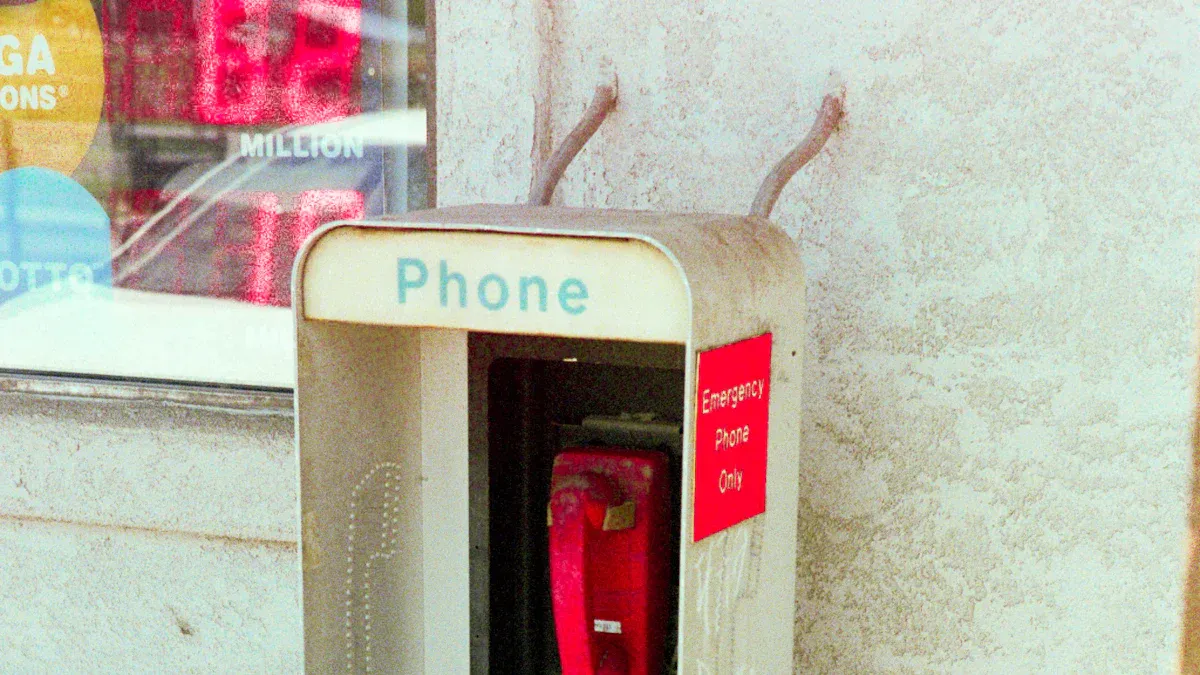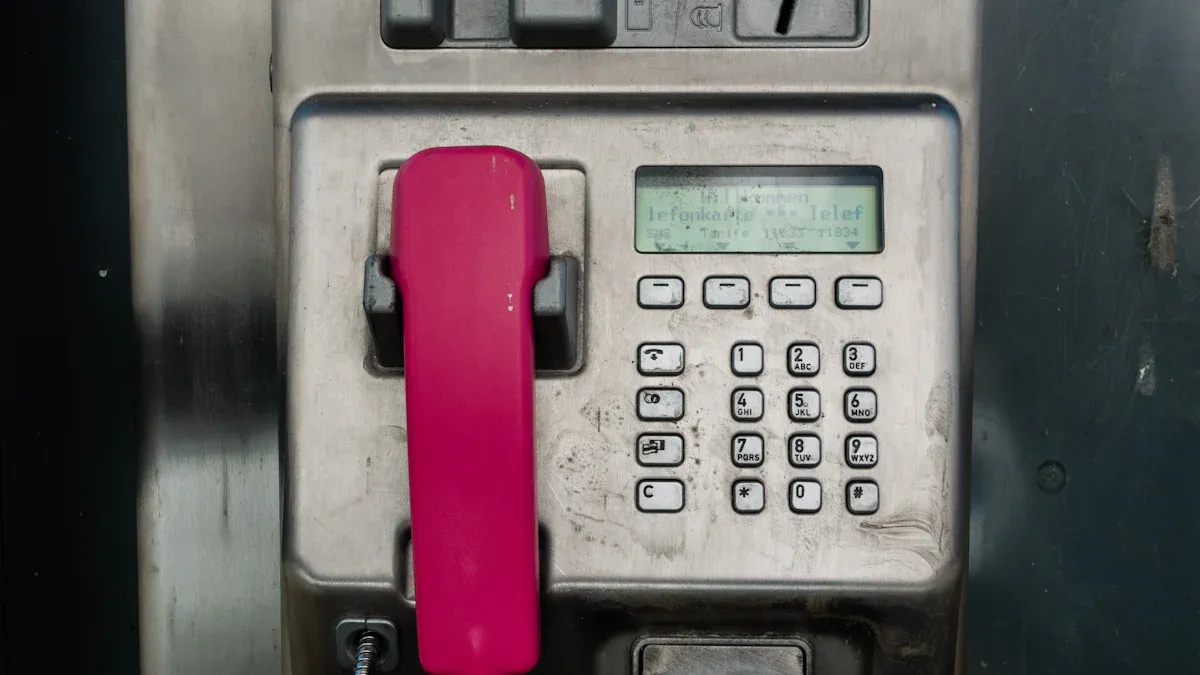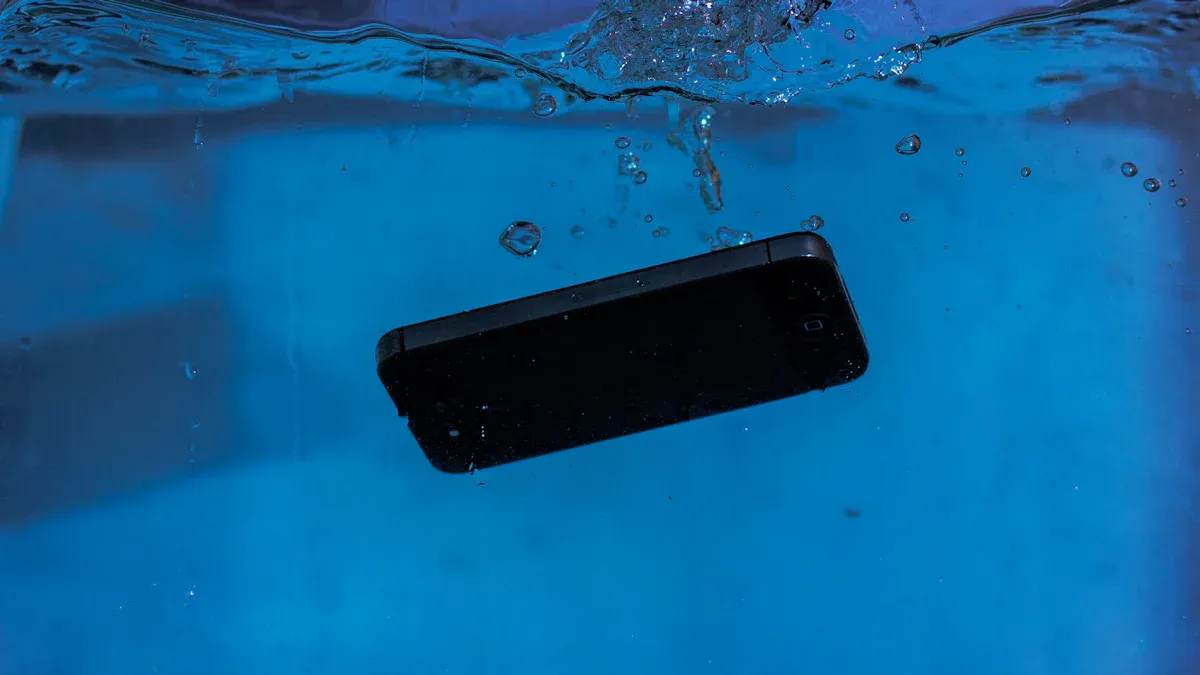
A facility manager faces tough weather at times. They need a reliable IP weatherproof telephone. Some choose an IP68 Industrial Telephone for harsh sites. Others pick a rainproof weatherproof telephone or even an offshore weatherproof telephone. The right choice keeps communication clear, no matter the environment.
IP Weatherproof Telephone Ratings Explained

What Is an IP Rating?
An IP rating stands for "Ingress Protection." This rating tells people how well a device can keep out dust and water. Every IP rating has two numbers. The first number shows how much solid stuff, like dust, the device can block. The second number shows how well the device keeps out water. For example, if someone sees "IP66," the first "6" means it is dust-tight, and the second "6" means it can handle strong water jets.
Why IP Ratings Matter for IP Weatherproof Telephone Selection
Choosing the right IP rating makes a big difference. If a facility sits near the ocean, saltwater spray can damage regular phones. A factory with lots of dust in the air needs a phone that blocks tiny particles. An IP weatherproof telephone with a high rating keeps working even when the weather gets rough. People rely on these phones for safety and fast communication. Picking the wrong rating can lead to broken phones and lost connections.
Tip: Always check the IP rating before buying a phone for outdoor or harsh environments. The right rating means fewer repairs and less downtime.
Common IP Ratings for IP Weatherproof Telephones (IP65, IP66, IP67, IP68, IP69K)
Many IP weatherproof telephones use ratings like IP65, IP66, IP67, IP68, or IP69K. Each rating offers a different level of protection:
- IP65: Blocks dust and handles water jets from any direction.
- IP66: Keeps out all dust and stands up to stronger water jets.
- IP67: Stays safe from dust and can survive being underwater for 30 minutes.
- IP68: Offers full dust protection and can handle long periods underwater.
- IP69K: Gives the highest protection. It can take high-pressure, high-temperature water jets.
People pick the right rating based on where they plan to use the phone. For example, a phone on a rainy loading dock might need IP66. A phone on a ship or in a chemical plant might need IP68 or IP69K.
Quick Reference Table: IP Ratings and Protection Levels
Here is a quick table to help everyone understand what each IP rating means:
| IP Rating Digit | Protection Type | Quantitative Definition |
|---|---|---|
| First Digit (Solids) | Dust Protection | 0: No protection 1: Large solids 2: Medium solids 3: Small solids 4: Solids >1mm 5: Harmful dust 6: Completely dust tight |
| Second Digit (Liquids) | Liquid Protection | 0: No protection 1: Dripping water 2: Water drops at 15° tilt 3: Water/rain at 60° angle 4: Splashing water 5: Water jets (12.5 L/min) 6: Strong water jets (100 L/min) 7: Immersion up to 1m for 30 min 8: Continuous immersion under pressure |
This table shows how each number in the IP rating stands for a real test. For example, IPx5 means the phone can handle water jets at 12.5 liters per minute. IPx7 means the phone can stay underwater for 30 minutes at a depth of at least 1 meter. These numbers help people choose the best IP weatherproof telephone for their needs.
How to Choose the Right IP Weatherproof Telephone

Assess Your Facility’s Environmental Conditions
Every facility faces different challenges. Some places deal with heavy rain, while others have lots of dust or even salt spray from the sea. Before picking a phone, a manager should walk around the site. They should look for areas with water, dust, or chemicals. They might notice strong winds or places where equipment sprays water. These details help them understand what kind of protection the phone needs.
Tip: Take notes or photos during the walk-through. This makes it easier to remember problem spots later.
Match Environmental Needs to the Correct IP Rating
After checking the environment, the next step is to match those needs to the right IP rating. For example, a warehouse with dust and occasional water splashes might need a phone with an IP65 rating. A phone near a car wash or in a food factory may need IP69K because of high-pressure cleaning. If the phone sits outside in the rain, IP66 could work well. For places with flooding or where the phone might get submerged, IP67 or IP68 is best.
Here’s a quick guide:
| Environment | Suggested IP Rating |
|---|---|
| Dusty indoor area | IP65 |
| Outdoor, exposed to rain | IP66 |
| Near water jets or hoses | IP66 or IP69K |
| Risk of submersion | IP67 or IP68 |
| High-pressure cleaning zones | IP69K |
Choosing the right IP weatherproof telephone keeps communication lines open, even when conditions get tough.
Consider Additional Features: Durability, Installation, and Maintenance
The IP rating is important, but it is not the only thing to check. Durability matters too. Some phones have tough cases that resist impacts. Others have special coatings to stop rust. A manager should also think about how easy the phone is to install. Some models mount on a wall, while others fit on a pole. Maintenance is another key point. Phones with simple designs are easier to clean and fix. Some even have self-draining features or replaceable parts.
- Look for:
- Strong, impact-resistant housing
- Corrosion-proof materials
- Easy-to-read buttons
- Simple wiring and mounting options
- Clear instructions for cleaning and repairs
Note: A good IP weatherproof telephone saves time and money by lasting longer and needing fewer repairs.
Common Mistakes to Avoid When Selecting an IP Weatherproof Telephone
People sometimes make mistakes when choosing a phone for harsh environments. Here are a few to watch out for:
- Picking a phone with a low IP rating for a tough environment.
- Forgetting to check for extra features like impact resistance.
- Ignoring the installation location—some phones need extra protection if placed in direct sunlight or freezing weather.
- Overlooking maintenance needs. Complicated phones can be hard to fix.
- Not asking for advice from a trusted supplier.
Remember: The best IP weatherproof telephone fits the environment, installs easily, and stands up to daily use.
Choosing the right IP weatherproof telephone helps any facility stay connected, even in tough conditions. They should check the environment, look for extra features, and talk with a trusted supplier. A simple checklist can make the process easier. Reliable phones keep everyone safe and communication strong.
FAQ
What does "IP" stand for in IP weatherproof telephones?
"IP" means Ingress Protection. It shows how well a phone keeps out dust and water. Higher numbers mean better protection.
Can someone install an IP weatherproof telephone outdoors?
Yes, people can install these phones outdoors. They work well in rain, snow, or dusty places. Just pick the right IP rating for the location.
How often should someone check or maintain an IP weatherproof telephone?
Most people check these phones every few months. Regular cleaning and quick repairs help the phone last longer and work better.


